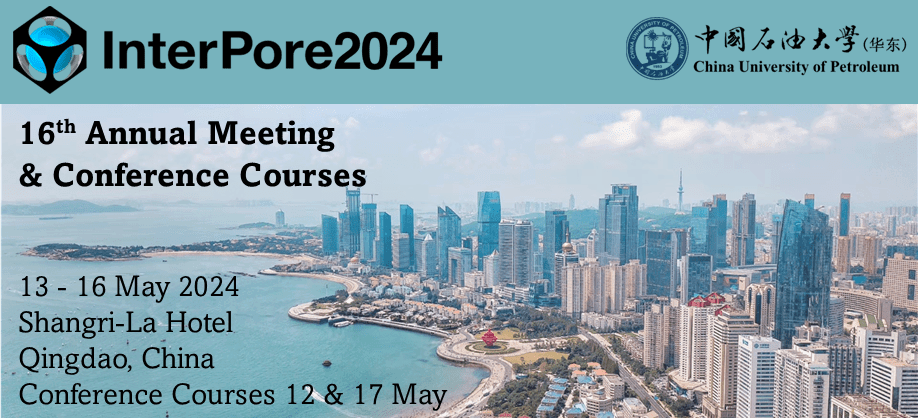Speaker
Description
Previous studies have demonstrated that curvature-based capillary pressure and transducer-based capillary pressure agrees well for both imbibition and drainage at equilibrium, if only connected fluid interfaces were analyzed. In this study, we further demonstrate that as long as the system reaches equilibration, curvature-based capillary pressure are representative for both connected and disconnected fluid interfaces regardless of whether the system is undergoing imbibition or drainage.
For a water-Soltrol 220 fluid system, we observed that the volume of disconnected nonwetting phase blobs grew during both imbibition and drainage, and surprisingly, growth was faster during drainage than imbibition. We calculated the thickness of the non-wetting phase films using the approach of Chester (1991), and based on this film thickness estimate, we calculated the flow rate of water through a sheet of film, then using the measured change in volume, we estimated the time needed for disconnected phase to equilibrate with the bulk phase via films. The results showed that the time required was well-within the time allowed for equilibration between scans.
This suggest that, due to the limitation in image resolution, some nonwetting phase blobs would be classified as “disconnected”, while it appears they may actually be connected through an “invisible” thin film of thickness below the image resolution. This has important implications for how we think about trapping in multi-phase porous medium systems, and the relative importance of flow in films with a thickness below the image resolution in equilibration processes.
| Country | United States |
|---|---|
| Conference Proceedings | I am not interested in having my paper published in the proceedings |
| Acceptance of the Terms & Conditions | Click here to agree |




.jpg)
